#WWI fiction
Text
Traintober 2023: Day 25 - Distress Signal
What's Out in Tidmouth Bay:
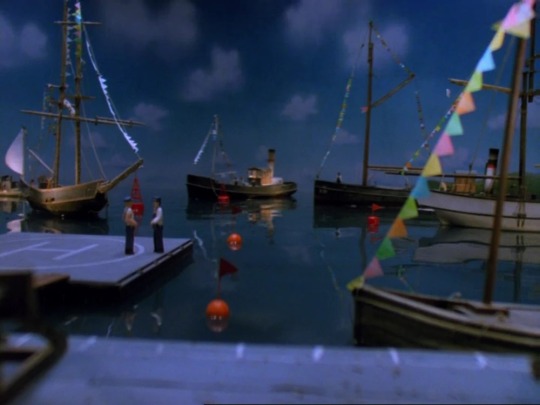
“And every year, on the date of the sinking, the ship rides the seas again, searching for the crew that abandoned her to her watery grave…” Salty finished, grinning at the assembled engines.
“Rubbish!” snorted Douglas. “Thir's na sic thing as ghost ships rising up oot o' th' ocean. Whit a doolally idea. Whitevur neist? A submarine letting oot distress signals, even though thir's na yin thare?” Both he and his twin Donald sniggered. Edward scowled.
“You shouldn’t joke about lost submarines,” he said grimly. “After all, there’s a tale of a submarine that was lost off Tidmouth bay that will make you funnel quiver.”
“Ooo! Tell it! Please!” exclaimed the other engines. Edward shot a dark look at them.
“This is not a pleasant story, and it’s certainly not one to make light of…” With one last sigh, the old engine began his story.
“Back during the First World War, both Britain and Germany began to deploy early submarines to disrupt shipping and try to starve their opponent out of the war. But back then, the submarines were still new technology – they rattled, and sprang leaks, and they were loud most of the time too. But when they glided underwater, not even the keenest of eyes could spot them.
“In 1916, several British submarines began docking at Tidmouth. These submarines were manned by local Sudrians who’d signed up for the navy, and they were very proud of their machines.
‘Best in the Navy!’ they would boast.
‘Never to be beaten!’ we would often reply, caught up in a great patriotic spirit for our country and our boys doing their part to defend it.
“One of the duties of these submarine crews was to tow large underwater mines into choke points in the harbour waterways. These giant, spiked balls of explosives were placed randomly, so that enemy ships would be unable to get too close to the harbour to attack. The submarines were good at this job, and the island’s people always felt safer knowing they were protecting us.
“It all changed one foggy night. A German U-Boat had been spotted off the coast of Liverpool and was sailing north towards us at a tremendous rate. At the time, Tidmouth was a major manufacturer of shells and explosives for the front line, and even one hit to the factory would do irreversible damage. The submarines in Tidmouth bay were sent out to find the German U-Boat, despite the thick fog that made navigation almost impossible – and they found it. Unfortunately, they also found the minefields.
“The radios were filled with crackly cries for help from Sudrian sailors, all lost in the fog and trying to avoid the mines they’d set while also hunting for a German U-Boat. We all waited with bated breath on the shoreline, all listening to the radio and praying for the boys…”
Edward paused, then tears filled his old eyes.
“And then, there was a flash of light – it was so bright, it pierced through the fog and lit up the entire bay – and screams. They came through the radio for only a couple seconds, but they were the longest seconds of my life. They were horrible – wretched, broken, filled with agony and suffering – and then they were gone. One of the Sudrian submarines had found the German U-Boat and fired on it… but they had missed… and hit an underwater mine. Both ships were destroyed, sinking down to their final resting places on the sea floor.”
The engines were horrified. Even Donald and Douglas were silent, eyes wide. Every engine who had lived through the First World War had known someone who had lost their lives – but to actually see it with their own eyes… it was horrific.
“But that wasn’t the end,” Edward continued, startling everyone. “One year later, the remaining submarines were sat in the harbour when their radios crackled with an unknown message. But it wasn’t just the submarines’ radios – no, it was every radio in Tidmouth. Every single one picked up this unknown, crackling message. It was a distress signal! – a shouted one, in two different languages. One was foreign – German; garbled, broken by the static of the radios. The other however… it was the lost sailors from the sunken submarine. They were shouting at each other and at us – and then there was a massive explosion that ripped through the radio-waves. There was a flash of light – and then those screams. They tortured us, far longer than the screams we’d heard on that fateful night. They were in German too now, as if both ships were wailing for their losses. And then… nothing.
“This happened again the next year, and then the year after that – and after that, the people of Tidmouth learnt. Every year, on the date of the accident, every radio in Tidmouth is switched off. It’s a moment of silence, for the men who lost their lives.”
No one knew what to say, and so they all went quietly to sleep.
The next evening, Edward was away on his branchline, and a new driver decided to leave the radio on for the engines in the sheds. This was not uncommon – the engines enjoyed the background noise; it was relaxing after a long days’ work.
It was only Donald and Douglas – Bear had the midnight goods, Gordon had the express, Salty was delivering some trucks to Elsbridge, Duck was collecting a late load of ballast, James and Henry were sleeping at the other end of the line, and Oliver was pulling the last passenger train of the evening.
“Edward's story - ye dinnae hawp it, dae ye?” asked Donald.
“Na! nae at a' - tis a guid story fur a friten, bit thir's na sic thing as ghosts,” snorted Douglas. “Especially nae ghosts sending oot distress signals.”
“Aye, whit nonsense…”
The song on the radio ended – but another didn’t start. Instead, the radio crackled – as if suddenly overwhelmed by a wave of static. Voices could be vaguely heard from the radio, quiet – but growing louder. They were in English… and in German. They were screaming, pleading, arguing, begging for help. It was a distress signal. The voices grew louder, more garbled – and then, there was a sonic BOOM! that erupted from the radio, almost knocking the Caledonian twins off their rails.
It was followed by a horrific wailing and screaming. It ripped through Donald and Douglas, their boilers going cold at the sound. It was the sound of dying men. It stretched on for what felt like an eternity, eventually tapering off into garbled groaning, and then nothing.
An unseen figure in a top hat clicked off the radio, and vanished out the back door, unheard by the twins. They were barely holding in their tears, eyes wide and wheels quivering.
Oliver puffed in, looking very confused.
“Are you two alright?” he asked. “You look like you’ve seen a ghost—”
“Dinnae... say that…” Donald croaked.
Oliver stayed respectfully silent.
Back to Master Post
#fanfiction writer#railway series#weirdowithaquill#thomas the tank engine#traintober 2023#traintober#ttte edward#ttte douglas#ttte donald#wwi fiction#naval#submarine#tw ghosts#railways#prompt: distress signal
25 notes
·
View notes
Text

snippet: The Trenches Have Vanished Under the Plough
Square: B2 - Crying During Sex
Rating: E
Word Count: 789
Ship(s): Dream of the Endless | Morpheus/Hob Gadling
Warnings: No archive warnings apply
Additional Tags: Alternate Universe - human, Alternate Universe - no powers, 1910s, World War I, PTSD, scars, discussion of trench warfare, soldier Hob Gadling, period-typical homophobia, mutual pining, oral sex, anal fingering, anal sex, implied eating disorder
Summary: In France in 1917, amidst the mud of the trenches and the bloody battles of the Great War, Captain Morpheus de Endelas and Corporal Robert “Hob” Gadling meet and are drawn irrevocably together. They begin an affair that ultimately threatens their hearts, their careers, and their very lives. It is not until after the war is over that the two broken men can even begin to think of picking up the shattered pieces of their lives and moving forward. But will they move toward one another, or away?
Fill for @dreamlingbingo
When this excerpt begins, Armistice Day is several months behind them. Morpheus has found Hob in the cottage on the Sussex coast where, shellshocked and still recovering from his wounds, he has retreated from the world. After an argument about their parting and an emotionally charged confrontation, they fall into bed together, unable to deny the strength of their feelings for one another.
“What?”
“I don’t think I’ve ever seen you naked before.”
“No,” says Morpheus. “No, I suppose not.”
Their trysts, Hob remembers all too well, were always hurried. Hidden. Clothing shoved aside just enough to reach what they needed in order to clutch at what pleasure they could. Now Hob looks his fill, eyes roving over the shapes he’s memorized by feel, if not by sight.
“You’re beautiful.”
Morpheus snorts, an ungentle and caustic sound that Hob doesn’t like at all.
“Look at me,” he says, gesturing down his body with a sweep of his arm.
“I am looking,” Hob says quietly.
Morpheus’s skin glows in the low light of the kerosene lamp. Even from across the room, Hob can pick out the scars – pale skin marred by even paler marks, except where some still show an angry red in places. It’s only been seven months since Armistice Day, after all. Not so much time to heal. A particularly bad one winds around Morpheus’s left knee like a vine. Hob has a matching one on his right. He’s surprised Morpheus doesn’t walk with a limp. He does, a bit, when it’s damp or when his leg has been strained.
Hob only realizes he’s still staring when he sees the pink flush creeping over Morpheus’s cheeks and chest, and registers his prick valiantly plumping a bit against his white thigh.
His tobacco pouch falls forgotten atop the table as he returns to the bed, drawn like a moth to a flame.
“You are. Beautiful,” Hob says, placing a knee on the mattress. “Beautiful,” he says, as he lies down beside Morpheus and runs a hand down his ribs, skims across his hip and his narrow flank. “Beautiful,” he whispers, tenderly urging the wasted thighs to straddle his chest. He fits his thumbs into the too-deep divots at his hips and gently pulls Morpheus forward, until his knees are snugged up into Hob’s armpits and his hardened prick can nudge against his waiting lips. Morpheus’s eyes are squeezed shut.
“Come, love,” he whispers into the silence between them, “let me show you. My beautiful man.”
He lifts his head, lets his mouth fall open, makes it as soft as he knows how, lolls his tongue out like a warm, red carpet welcoming his lover home. And carefully, Morpheus ruts forward into Hob’s mouth.
He moves slowly at first, so slowly, thighs tense, one hand braced on the simple wooden frame of Hob’s bed. Hob can see the scant muscles in his belly fluttering with the effort to stay upright, to keep his movements shallow; so he squeezes Morpheus’s hips and takes as much of his weight as he dares, encouraging him to move, desperate to feel every inch, every twitch.
When his prick bumps against the back of Hob’s throat Morpheus moans above him, loud and obscene in the quiet of the cottage, and Hob feels the vibration down into his chest, feels his own cock stir between his legs at the sound, the proof of Morpheus’s pleasure. When Morpheus’s thrusts quicken, Hob moans in turn.
Morpheus’s eyes fly open, piercing blue even in the dim light of the kerosene lamp, and his free hand, which had been flexing against his own thigh, steals tentatively into Hob’s hair. Their eyes are locked, now. Hob cannot look away. He will never be able to look away from Morpheus again. Beautiful, beautiful, he thinks, trying to broadcast his thoughts like a radio signal. My love, my beautiful man, stay, stay, be mine, my love, stay.
It is absurd, to think that Morpheus can hear him, and Hob is neither a mystic nor an occultist. But something happens, some spark catches between them; perhaps it is but physical passion, but Morpheus’s kiss-bitten lips part in astonishment, and those pristine eyes fill with tears and overflow, twin crystal streams that run down his thin face and drip onto Hob’s chin.
Hob wishes wildly that he could taste Morpheus’s tears, but then his hips are stuttering, and he is crying out again, and all Hob can taste is his own spit and Morpheus’s spend on the back of his tongue, and that is enough; that is a beauty all its own.
“I may wake in the night,” mutters Morpheus, “especially if the storm is bad. I do not sleep well, these days.”
“You? Really? That’s a bit hard to believe,” says Hob. “You know… we used to call you ‘the cat.’ Because you could curl up and doze off anywhere.”
“I know. I know you did,” says Morpheus. “Things are different, now.” His voice is rough, and so tired.
“Yeah,” says Hob. “Yeah, I know.” He clutches Morpheus a little closer and kisses his temple. “I know.”
Historical note: The title of this fic is from the song “No Man’s Land” (also known as “The Green Fields of France” or “Willie McBride”) by Eric Bogle. I recommend this 1980 recording by the Clancy Brothers and Tommy Makem, which makes me cry literally every time I hear it. It's one of the great anti-war songs of the 20th century.
This fic is almost complete! If you enjoyed this excerpt, subscribe to me on AO3 to get notified when the finished work is posted!

green = complete, orange = WIP
#dreamling#the sandman#dreamling bingo#dream of the endless#hob gadling#wwi fiction#my writing#I came so close to getting this whole thing done by the bingo deadline - but alas! enjoy this excerpt at least!#the trenches have vanished under the plough
29 notes
·
View notes
Text
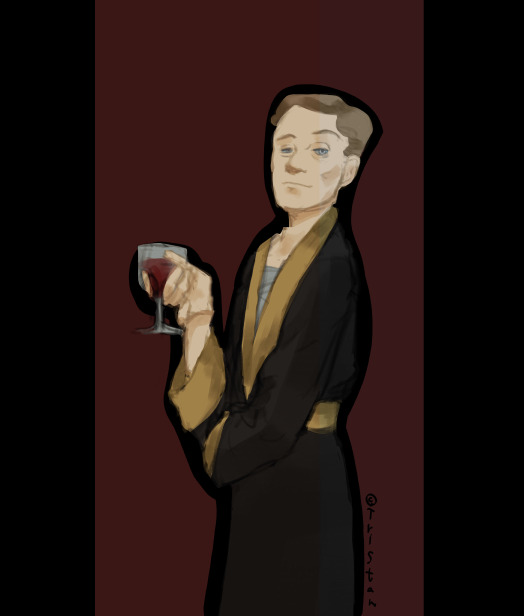
#illustration#Art by Tristan#Edwardian#1910's#Julia Wainscott#Julia in her smoking jacket#Reffed it from a Leyendecker image#WWI fiction
14 notes
·
View notes
Text
Finished all CGs!
I will now take a trip to Germany (yes really) and then work on compiling it. Easier to say 'we have a release date' now, but I'm not going to jinx it.
9 notes
·
View notes
Text
While goofing around in Discord for a bit, I ended up writing a quick short story the other day. Thought I'd share it here.
We open with the sound of gunfire...
A scraggly little man runs through a bombed out village in the French countryside. With him, he carries nothing but the clothes on his back and the papers in his pockets. Not a weapon on him as his gun was emptied long ago, and it's weight abandoned. His appearance is just as meaningless: brown hair, brown eyes. Streaks of white trailed from his forehead to his chin where a coat of dust and dirt had been carried down by trails of sweat, all that was washed caught in the creases of his face. He couldn't have been more than 20, but his soul felt much, much older. Even as he dodged bullet after bullet with youthful ease, his worn face burned through, juxtaposing the scene into something unbelievable. None of this was believable. None of this felt real.
As the sun stretched a tired hand over the horizon and grabbed the French ruins to pull itself up, the soldier started to worry. There was nowhere to go. The German camps already knew he was here, and without the dark, it wouldn't be long until they found him. Farmland stretched for miles in almost every direction save for the east, where beyond the river, the blackened skeletons of trees stood together in naked unity. The other side was either leveled by artillery or laid with more Germans, but surely the charred posts could provide at least a minute more coverage. A minute more was all he needed.
It was towards the middle of this final sprint where the pavement began to hurt beneath his feet. His boots smacked along the cobblestone almost rhythmically, though he could feel his gait grow clumsy. **Thud. Thud. Thud.** The machine gun followed, blindly reaching its hands through the twilight in hopes of grasping something still alive and squirming. **Thud.** *RATATATATATATATAT.* **Thud.** *RATATATATATATATATAT.* A drop of sweat fell from his chin. The bridge was in view now. It wouldn't be long until-
A light. A pale blue light flashed just beyond the first few lines of trees. Like a candle or lantern it seemed to flicker with a kind of uncertainty. All at once the overwhelming racket of machine fire subsided. The sounds of his feet, the creaking of his bones, the chatter of his teeth all stopped. Even the wind seemed to stop its groans. Someone was there, and regardless of being friend or enemy, they were waiting.
So entranced by the glimmer in the wood he'd made it to the bridge before he'd even noticed, and by that time had paused… As he stared into the glowing light he realized how curious it was, and yet how terrible. And among the hubbub he'd decided how little an extra minute really meant. Robbed of all other options he jumped.
The icy waters took him gracefully. He plunged in like so many of the civilians before, and like them, he dove to touch the river's rocky bed.
The current swept him along for what felt like miles, though it was very likely less than that. Flakes of white fell into the water around him, floating at his side, catching in his hair, only to be swept away again by his continuous thrashing… he never did learn to swim... Ash, he thought. That's what it must've been. Yet it didn't crumble in the waves or disperse into finer particles. And the air was sweet of honey, not the stale smoke of the village.
When the water finally began to thin he caught onto a branch bowing over the bank and started to pull himself out and onto the shore. There he collapsed. His woolen coat was heavy enough when it was dry, while wet it was even more burdensome, and not nearly as warm. With desperate hands he clawed at his belt until he had the garment off, then cast it to the ground with a wet *slop.* Next to come were his boots. It was only then, after being relieved of the cold pressures, that he could put his mind together for a moment.
Petals, he realized. All over the ground and clumped along the river's edge. What he thought was ash in the water now appeared to be cherry blossoms. All above him the trees were in bloom, crowning the pink skies with branches black as coal and flowers soft as waves of the sea. The wind rocked them gently but sent no chill down his spine as he took up his belongings and wandered barefoot into those woods, listening as the birds warbled softly. Just one more minute, he thought. Just one minute more and he'd go back…
“Hail! What brings you to this part of the woods?”
Stunned, the soldier turned to locate the source of the call. Just a few meters away another man stood, tall and round. His torso seemed to be a cage built from intricately woven wires. The head and limbs were of similar construction but also displayed simple facial features cut from sheets of weathered brass. He wore no clothes save for a cloth wrapped around his waist. Inside his chest a morning dove rested on a crossbar, cooing gently to itself. None of this seemed to shock the soldier, he simply stared on with hollow eyes, marveling at the monument before him. It was odd, by all means, but shock in this moment would be too much.
“Have you gone mad, friend?” it continued, leaning forward with hands on its knees, moving with such human fluidity. Someone had taken the time to weld on fingernails, he noted.
“Mad? Well… more than probably.”
The brass man hummed, the bird cooed once more, thinking about what he'd just said. “Well, you should come with me to the aviary.”
#my post#my writing#story#short story#wwi#wwi writing#wwi short story#the boy in the mews#wwi fiction#isekai#yeah i guess technically this would be an isekai#tw guns#leonardo eats carrots#creative writing#fantasy short story
5 notes
·
View notes
Text

Line art for Major Isenstein and Oberst Odinkirk. Characters from my original ww1 fictional graphic novel Ottoway.
#imperial germany#wwi fiction#officers#iron cross#spurs#major#oberst#siegfried isenstein#vincent odinkrik#jackboots#line art#character concept#this belt grab was not meant to look so seductive T.T#i need to borrow you#comrade
9 notes
·
View notes
Text
youtube
Thomas Gray tells the love story of his best friend, Emmet Bourgogne and the beautiful widow, Claudine. Thomas and Emmet were soldiers in WWI together fighting for France.
This short story was written in September 2022 for a writing contest. I picked a different story to submit which did not win. I think this possibly could have been a better choice.
This story is both Historic Fiction and LGBT fiction. None of these characters are based on real people or were ever real. This is all the author's imagination.
#Thomas is gay and talks about his best friend Emmet who is a female husband who falls in love with the widow Claudine#Emmet and Claudine forever!#There are subtitles available too!#short story#lgbt fiction#historic fiction#female husbands#wwi fiction#lgbt characters#2023 release#v. b. lavender#gay soldier#bisexual#bisexual characters#bisexual women#Youtube
2 notes
·
View notes
Text
The French Frontlines, early 1918: It's WWI and 21 year old Reese St. John is an Ambulance driver for the English Army.
She is also one of Cedric St. John's eight bastard children. Found and favored by her responsible Uncle Stephen, Reese carries out her uncle's wish that she track down and reunite with all of her missing siblings.
Part historic drama, part family epic with twists of mystery and romance; The 8 Bastards of Cedric St. John is an experimental writing project inspired in part the Modernist movement. The story will jump around in time and shift in perspective between the various characters to slowly unfold the whole story of Cedric's many children in 20th century England and beyond.
All names used in this project are not based on any real people living or dead. This is all my imagination. No one in this story was ever a real living person.
Genres: Historic Fiction, Drama, Family Epic, includes some LGBT romances
(for example, Reese is a butch lesbian- which is not a spoiler- but there are other LGBT characters- mainly bisexual women or lesbians and one trans dude)
#Yeah so I started posting the new project#I've been working on this project since I've left school so since like mid-February at least#I like how the title is like a slap to the face- which is what WWI and modernism was to English society when you think of it#the 8 bastards of cedric st. john#Stephen probably has the best lines in this chapter- I like his takedowns of their other relatives#Cedric is one of the villains- basically a rich entitled idiot who no one likes even his own brother cannot stand him#I hope that all my listeners/readers hate him as much as I do :)#I love when a story has a villian I can hate; then I can invest in the drama#Reese is probably the closest person this story has to a main character#the story is set to 18+ since it is adult fiction- a lot of it revolves around affairs and mystery of who Cedric's missing children are#writing#writeblr#v. b. lavender#mychatter#my writing#youtube#historic fiction#new releases#WWI fiction#experimental writing#lgbt characters#lesbian characters#family epic#2023 releases
2 notes
·
View notes
Text
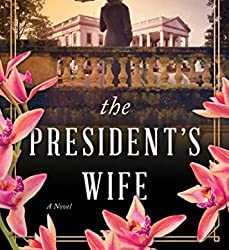
Start off #Spooktober easy: #HistoricalFiction about a scary part of US history in THE PRESIDENT'S WIFE via
@Sourcebooks. My #BookRecommendation is here: https://expendablemudge.blogspot.com/2023/10/the-presidents-wife-historical-fiction.html
0 notes
Text
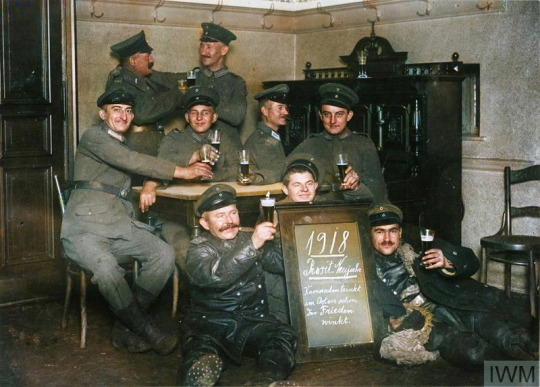
German troops toasting the Happy New Year of 1918 in their billet. The message on the boards reads: "Kameraden trinkt im Osten schon für Frieden winkt" - translated to: "Comrades in the East already drink for peace".
#happy new year#new years#new years eve#2024#ww1#historical photos#the first world war#wwi#1917#canadian history#world war one#world war 1#the great war#history#ww1 history#first world war#french army#ww1 art#ww1 fiction#british army
125 notes
·
View notes
Text
Queer WWI Literature
This is a very niche and limited category, so I’ve been trying to throw together a list of what I can find out there for anyone else who might also be interested. What follows are all books that contain LGBTQ+ rep of any kind, that also involve the First World War as a central theme.
Titles with an asterisk* are the ones I have personally read, and would be more than happy to talk about/answer any questions about their content/rep!
Written in the 20th Century
Alf, by Bruno Vogel (1929)
Despised and Rejected, by Rose Allatini (pseud. A.T. Fitzroy) (1918)*
Lads: Love Poetry of the Trenches, edited by Martin Taylor (1989)
The Memorial, by Christopher Isherwood (1932)
My Father and Myself, by J.R. Ackerley (1968)
The Prisoners of War: A Play in Three Acts, by J.R. Ackerley (1925)*
The Regeneration Trilogy (Regeneration, The Eye in the Door, The Ghost Road), by Pat Barker (1991, 1993, 1995)*
A Scarlet Pansy, by Robert Scully (1932)*
Strange Meeting, by Susan Hill (1976)
Written in the 21st Century
The Absolutist, by John Boyne (2011)
Across Your Dreams, by Jay Lewis Taylor (2016)
Alec, by William di Canzio (2021)
Ashthorne, by April Yates (2022)
Awfully Glad, by Charlie Cochrane (2014)
Bonds of Earth, by G.N. Chevalier (2012)*
The Boy I Love, by Marion Husband (2005)*
The Daughters of Mars, Thomas Keneally (2012)
Eleventh Hour, by Elin Gregory (2016)
The Fallen Snow, by John J. Kelley (2012)
Fighting Proud: The Untold Story of the Gay Men Who Served in Two World Wars, by Stephen Bourne (2017) – (I know I said fiction, but I’m going to leave this one here anyhow)
Flower of Iowa, by Lance Ringel (2014)*
The Great Swindle, by Pierre Lemaitre (2013)*
The Indian Clerk, by David Leavitt (2007)
The Inheritance of Solomon Farthing, by Mary Paulson-Ellis (2019) *
In Memoriam, by Alice Winn (2023)
The Lie, by Helen Dunmore (2014)
The Paying Guests, by Sarah Waters (2014)
A Pride of Poppies, short story collection published by Manifold Press (2015)
Promises Made Under Fire, by Charlie Cochrane (2013)
The Shell House, by Linda Newbery (2002)*
Spectred Isle, by K.J. Charles (2017)
The Stranger’s Child, by Alan Hollinghurst (2011)
The Warm Hands of Ghosts, by Katherine Arden (2024)
Whistling in the Dark, by Tamara Allen (2008)*
Wild with All Regrets, by Emma Deards (2023)
The World and All that it Holds, by Aleksandar Hemon (2023)
This is a dynamic list, which I will continue to update whenever I find something new. If you know of anything that isn’t on this list and needs to be, please let me know!
#wwi#queer fiction#lgbtq books#queer lit#queer literature#lgbtq literature#historical fiction#booklr#book recs#queer wwi fiction#world war one#world war 1#the great war#lgbtq
769 notes
·
View notes
Text
ok i keep seeing people say that the captain must have served in WWI because of his age. Personally, I don't think he did because of how he behaves in the flashbacks in Redding Weddy (and, more obviously, his lack of medals showing a lack of involvement) but I don't think we'll ever know for sure, it doesn't seem important to his character and he hasn't made any references to anything outside of WWII let alone the first one. So just for kicks, here's a list of possible reasons the Captain didn't serve:
Reserved Occupation: conscription exempted a lot of people due to a variety of reasons and about 1/3 eligible men were exempted due to RO. Basically it means that men who were in jobs considered important could only be conscripted in a very narrow age margin (they could volunteer but they didn't have to go) such as vets, clergymen, miners (complicated situation for that one), and a variety of men who worked in engineering or industrial related jobs (including those who worked in munitions (sound familiar?))
Health: there's a whole variety of health problems that could exempt an otherwise fit man including asthma, arthritis, a rash even. It could literally have been a passing illness or a childhood problem that passed by the time WWII rolled around, just a bit of bad luck that hit him at just the wrong time (or it could have been bad knees that he lied about 20 years later)
Conscientious Objection: I don't think it's this one, that guy loves war, he wants to fight so bad, but I'm not going to just not put it here
Age: LISTEN. We don't know the Captain's canon age. At his youngest I would say he was born in 1900, putting him at 46ish when he died (the age Ben was when Ghosts first started (he could easily be older and in fact probably is idk (Ben help me out here ple-))) which would mean when the war kicked off he was 14 and conscription began he was only 16. He would have hit conscription age at 18 in 1918 which was the year the war ended. Conscription continued until 1920 but the fighting was "officially" over so they wouldn't have been calling on as many people and he might have been passed over for someone more fit, more healthy, less reserved occupationy etc. etc. I don't think it was this one either but for posterity here it is. Or he was conscripted late which would lead to
Training: This one happened to my own relative during WWI. If Cap came of age during the war, which he would have if he died anywhere between the ages of 46-50, he would have been conscripted and trained in England during the war. If the war ended while he was still in training he might never have been sent out at all despite being the right age for it. Any of the above could also have caused this - a bad rash, a nasty cough, being too young, working in a factory building ships, and so on - but it might very well have happened and would have prevented him from seeing any medal-worthy action or getting the experience needed to make him less of a nervous wreck leading to the Cap we see in Redding Weddy
To conclude: the Captain might have served in WWI but he could just as easily not have. We'll probably never know and any interpretation of his backstory is both valid and a very interesting read into his character
#long post //#fr though he's got no medals from WWI in the flashbacks that's the most damning evidence in my eyes#no one think i'm angry please i'm not i just fucking love history and theorizing about fictional men#bbc ghosts#bbc ghosts captain#redding weddy#genuinely fr i'm not vaguing anyone i am simply unwell in the head about this man
126 notes
·
View notes
Text
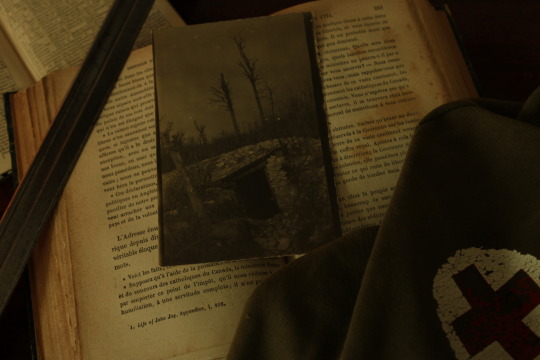
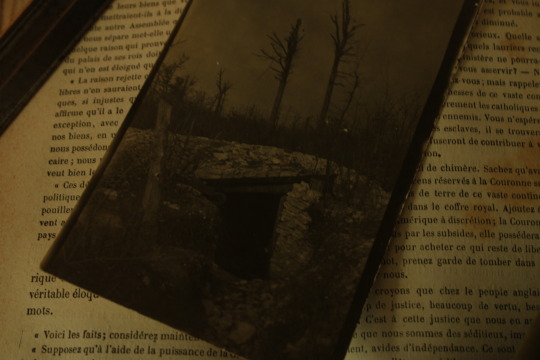
Phillipe Laflamme
23 August 1916
Officers gave us the go ahead to look into a bunker we thought to of been destroyed after losing communications with it. Although the entrance was originally caved in, we were able to clear the rubble and are heading inside.
#I actually really liked doing this one!#photography for a game!#Amnesia the bunker my beloved#amnesia#amnesia the bunker#photography#frictional games#henri clement#amnesia game#horror#video games#antique#1910s#wwi#world war 1#fiction#ww1 fiction#ww1#do not upload on other sites/steal
55 notes
·
View notes
Text
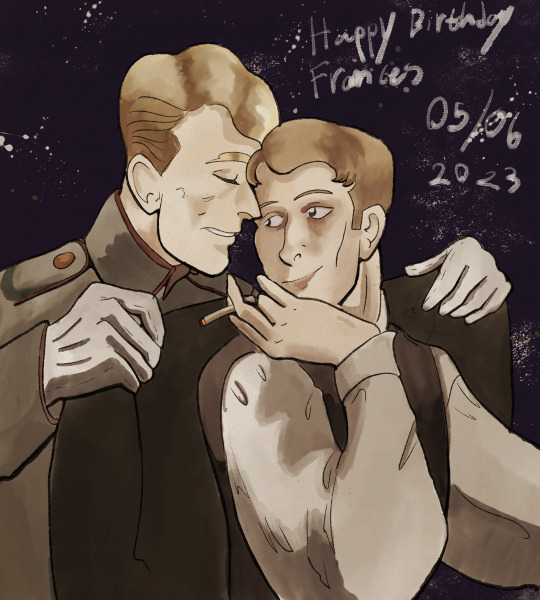
Happy (late) birthday to my friend @humboldtidecomics!
12 notes
·
View notes
Photo
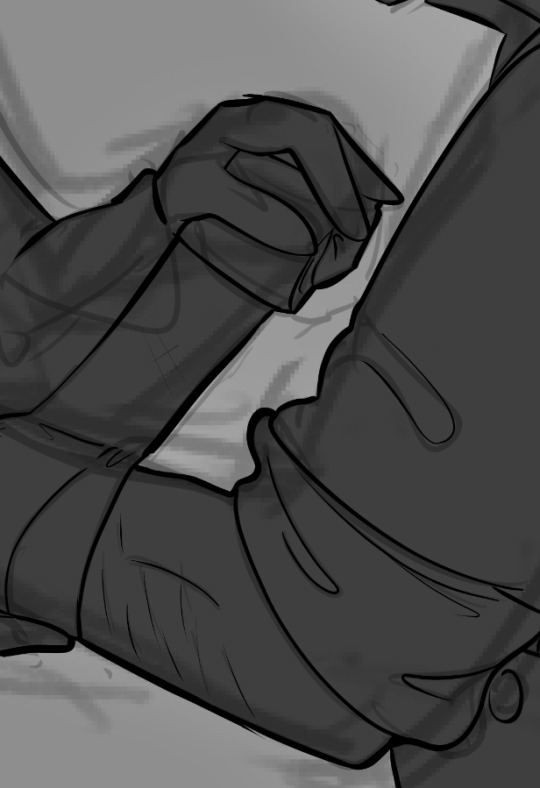
Finally had some time after the super important conference to work on my game! :D
I’m trying to finish this pic this week.
9 notes
·
View notes
Text
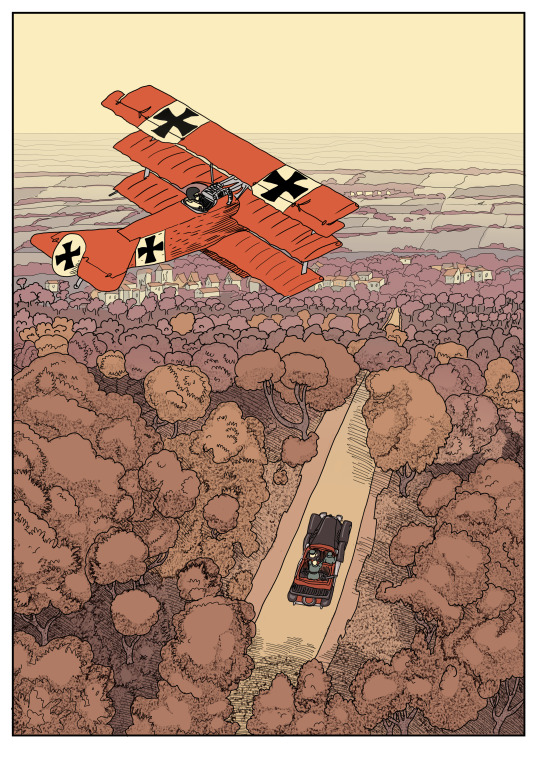
The Red Baron's cameo in Ottoway Volume 2. I might repost this on his birth and death days. Landscapes are my weakness, and bird's eye shots too. Thank George Barbier for the Autumn colour scheme.
Major Isenstein's red 1915 Chevrolet is on the road below.
@tristandelarkadien for landscape art exchange!
#manfred von richthofen#the red baron#cameo#ottoway#ww1 fiction#autumn#red plane#george barbier#artists on tumblr#edwardian#historical fiction#1915 chevrolet#1916#1917#wwi#first world war#the great war#art exchange#landscape#bird's eye view#nature#flanders#belgium
54 notes
·
View notes